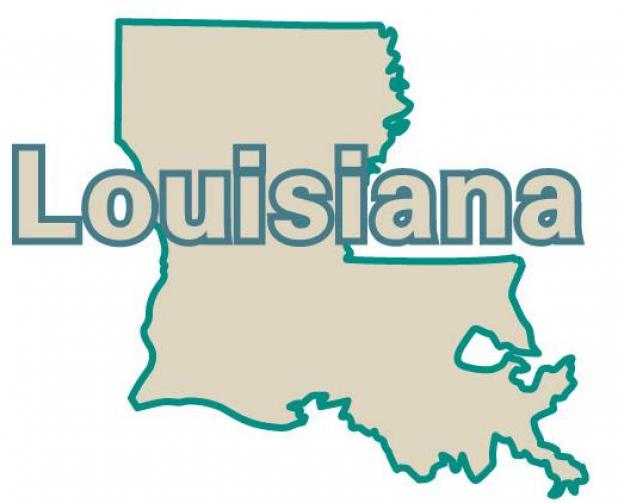
Louisiana Spotlight: Statistics tell a sad story
BATON ROUGE — Reading through reams of data released over the last month about Louisiana can be a dizzying and depressing exercise.
Statistics detail a state struggling with basic quality-of-life measures, mired in deep poverty and lagging the nation in employment and income.
Let’s start with the latest U.S. Census Bureau data, which shows Louisiana has the second-highest poverty rate in the nation, tied with New Mexico at 19.7 percent. That means about one in five people in Louisiana lived below the poverty level in 2017. Only Mississippi had a higher rate — and just barely — at 19.8 percent. The national poverty rate is 12.3 percent.
Louisiana’s rate of children in poverty is worse, at 28 percent .
A separate report from the U.S. Department of Agriculture showed that 17.3 percent of Louisiana’s households — more than one in six — are deemed “food insecure,” a designation that means those households struggle at least sometimes to pay for enough food to maintain a consistent, healthy life.
That’s compared to 11.8 percent of households nationally, according to the USDA data. And, the problem has gotten worse, with the report showing the percentage of Louisiana households with food security growing 5.6 percent over the last decade.
Also looking across the past 10 years, the Pew Charitable Trusts announced that Louisiana was one of the slowest-growing states in the nation in terms of personal income.
Louisiana was one of 11 states where the combined personal income of all state residents grew at a rate of less than 1 percent annually from the fourth quarter of 2007, when the national recession began, to the first quarter of 2018, according to the data . Personal income nationally rose by 1.6 percent a year, by comparison.
Louisiana continues to struggle with one of the highest unemployment rates in the nation. The latest federal data showed the state’s jobless rate hit 5 percent in August, worsening for the fifth straight month. The national rate was 3.9 percent by comparison. Louisiana has the third-highest unemployment rate among states.
And while the state has stabilized its finances after a decade of patchwork fixes and consistent budget shortfalls, financial firm Moody’s Analytics deemed Louisiana the worst-prepared state for a recession, based on its latest annual stress tests on state budgets.
Louisiana was one of 17 states that Moody’s said “have significantly fewer funds than they need” for another recession if one were to hit the nation, looking at “rainy day” fund balances and other available resources. The state is considered worst-prepared for even a small downturn.
In still another disheartening data set, Louisiana ranked second in the United States for the rate of women murdered by men.
The Violence Policy Center announced this month that it looked at 2016 homicide data , which it said showed 58 women were murdered by men in Louisiana, a rate of 2.42 per 100,000 people. The organization said Louisiana ranked in the top 10 states for that benchmark for the eighth year in a row.
For those looking for more positive data trends, they can find some of that, too.
New federal figures show personal income in Louisiana grew faster than nearly every other state in the second quarter of 2018. Louisiana’s 5.9 percent growth rate was above the national average of 4.2 percent.
Economists say Louisiana is moving past its own recession and showing improvement. While Louisiana’s unemployment rate remains among the highest in the nation, it is well below the 8.4 percent jobless rate the state reached in November 2010 at the peak of the recession.
The Census numbers, meanwhile, showed a significant drop in Louisiana’s percentage of people without health insurance. Louisiana’s uninsured rate fell to 8.4 percent in 2017, lower than the 8.7 percent national average — and nearly cut in half from the state’s 16.6 percent uninsured rate in 2013.
The decrease isn’t without controversy, however, since it stems from Democratic Gov. John Bel Edwards’ expansion of the Medicaid program, which added 480,000 people to government-financed health insurance coverage, a move unpopular with Republicans.
Melinda Deslatte has covered Louisiana politics for The Associated Press since 2000. Follow her at http://twitter.com/melindadeslatte
